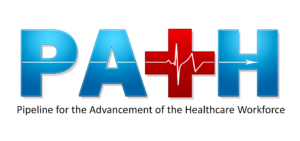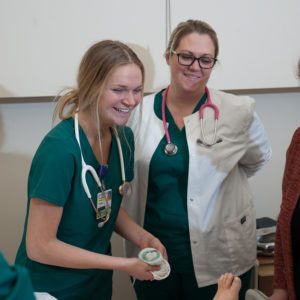
Choose which program works best for your path!
This curriculum includes classroom, lab, and clinical experience in a long-term care facility or hospital setting. Certified nursing assistants (CNAs) are prepared to provide one-on-one assistance with “activities of daily living” (ADLs), defined as dressing, bathing, walking, feeding, making beds, taking and recording vital signs, and other essential basic services. This care may be provided to hospital patients, care facility residents, or those requiring home healthcare. Day and evening classes are available in Quincy, Pittsfield, and Mount Sterling.
Work with a counselor to get your personalized plan!

The PATH program, funded through an Illinois Community College Board grant, aims to serve, create, support and expand the opportunities for individuals in nursing and select health care pathways to obtain certificates and degrees, allowing them to enter and/or advance their careers in the health care industry.
The PATH grant provides free short-term and long-term education/training programs designed to help participants gain employment in high-wage and in-demand occupations within the health care field. Students receive supports, including compensation to help cover basic costs while receiving the training.
The Advanced Nursing Assistant program has been developed in conjunction with the Illinois Department of Public Health to expand on the skill level and professional opportunities of the Certified Nursing Assistant. Additional skills in oxygenation, wound care and sterile technique are taught, along with an expansion of professional skills and behaviors such as communication and conflict resolution. An expanded clinical practicum will also introduce the advanced nurse assistant to a wider variety of employment options available.
Upon successful completion of the JWCC Advanced Nursing Assistant program, a certificate of completion is awarded and the student is eligible to take the State of Illinois ANATP certification exam. Once a student successfully completes the required written competency examination, employment opportunities for certified nursing assistants (CNAs) are excellent.

| FYE 101 | Blazing Your Trail | Details | 1 | ||||||||
|
|||||||||||
| NUA 101 | Basic Nurse Assistant | Details | 6 | ||||||||
|
|||||||||||
| NUA 103 | Nursing Assistant Practicum | Details | 1 | ||||||||
|
|||||||||||
| NUA 121 | Advanced Nurse Assistant | Details | 7 | ||||||||
|
|||||||||||
| OFT 281 | Medical Terminology | Details | 3 | ||||||||
|
|||||||||||
Gainful Employment: For more information about graduation rates, cost, the median debt of students who complete the program, and other information, please view our Gainful Employment information for the particular certificate of study.